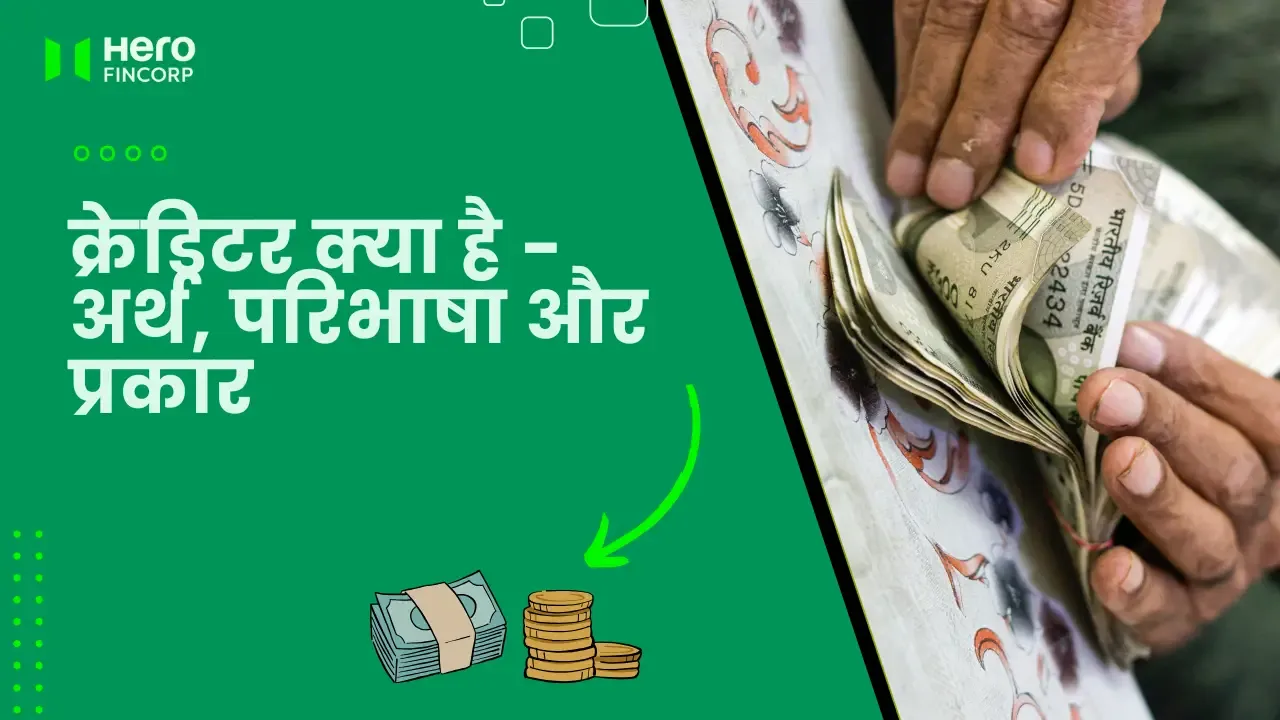
ई-वॉलेट (Electronic Wallet) एक वर्चुअल या डिजिटल वॉलेट है जो स्मार्टफोन/कंप्यूटर के माध्यम से नकद या कार्ड के बगैर सुरक्षित ऑनलाइन और ऑफलाइन भुगतान, पैसे ट्रांसफर और रिचार्ज की सुविधा...

अगर आप सोच रहे हैं कि 30 दिनों में CIBIL स्कोर कैसे सुधारें? तो सही रणनीति अपनाकर यह संभव है। कई लोग पूछते हैं CIBIL स्कोर कैसे ठीक करें या CIBIL कैसे ठीक करें, और इसका जवाब है: अनुशासित...

600 का क्रेडिट स्कोर औसत से कम स्कोर माना जाता है। इससे यह पता चलता है कि अतीत में देरी से भुगतान या अधिक कर्ज जैसी वित्तीय स्थिति रही है। यह स्कोर ऋण स्वीकृति में कठिनाई, उच्च ब्याज दरें...

यदि आप जानना चाहते है कि आमतौर पर पैन कार्ड के लिए आवश्यक दस्तावेज़ कौन-कौन से चाहिए या पैन कार्ड बनाने के लिए क्या-क्या चाहिए, तो यह गाइड आपके लिए है। आज के समय मेंपैन (स्थायी खाता संख्या)सिर्फ़...

साधारण ब्याज एक निश्चित समय के लिए मूलधन पर लगने वाला ब्याज है। जिसकी गणना सिर्फ प्रारंभिक मूलधन पर की जाती है। आप जब भी किसी से पैसे उधार लेते हैं या बैंक में जमा करते हैं, तो समय की...

जब भी पैसों का लेन-देन होता है, चाहे व्यक्तिगत जीवन में हो या व्यापार में, दो पक्ष होते हैं, एक जो पैसा देता है और एक जो पैसा लेता है। लेनदार क्या होता है, यह समझना हर उस व्यक्ति के लिए जरूरी है जो...

फर्स्ट टाइम सिबिल स्कोर का मतलब है कि आपने अब तक कोई लोन या क्रेडिट कार्ड नहीं लिया है, जिससे क्रेडिट ब्यूरो के पास आपके पिछले 24-36 महीनों का वित्तीय इतिहास नहीं है। यह ऐसी स्थिति है जब...

UPI - यूनिफाइड पेमेंट्स इंटरफ़ेस पर आधारित पेमेंट हमारे लेनदेन करने के तरीके का एक अत्यावश्यक और महत्वपूर्ण हिस्सा बन गए हैं। आसान होने के बावजूद, हमें UPI पर आधारित ट्रांज़ैक्शन करते समय...

Acquiring an established business can be a path to entrepreneurship. But the process often requires significant funding...





